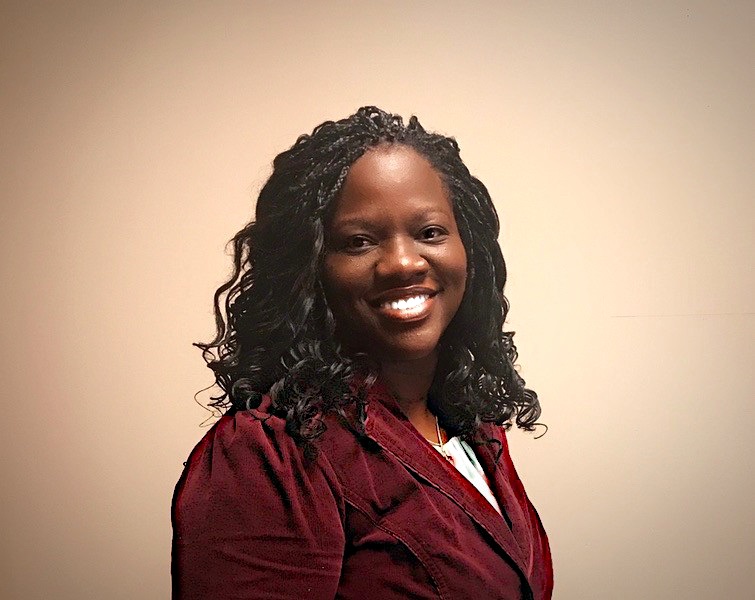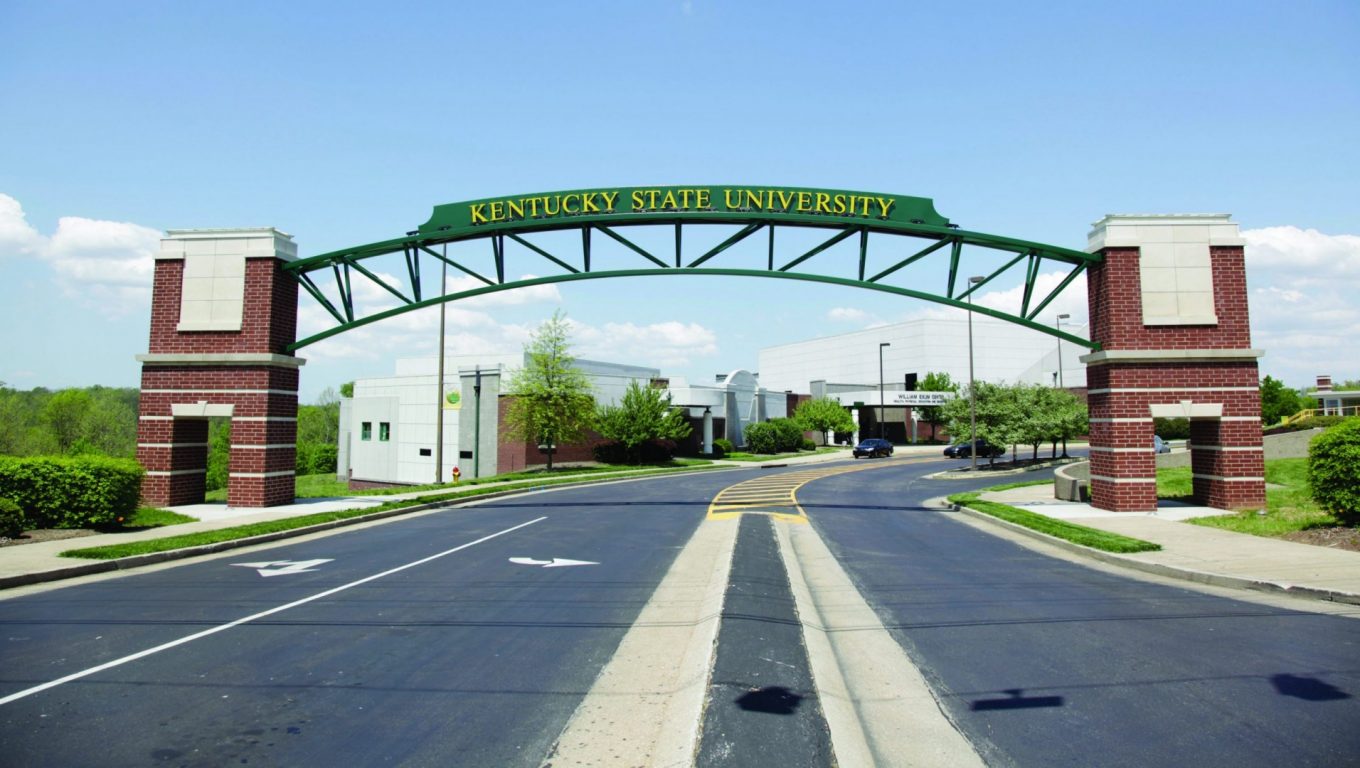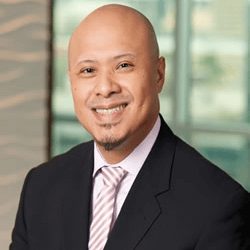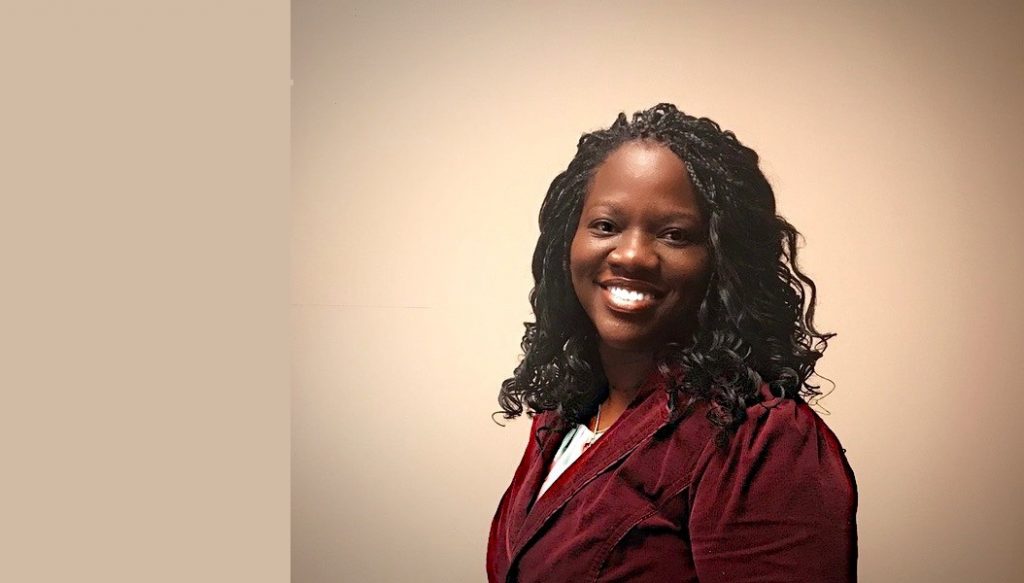
Dr. Pernella Rowena Deams is an academic administrator, currently serving in the role of Dean of Student Leadership, Conduct, and Health within the Division of Student Engagement and Campus Life at Kentucky State University in Frankfort, Kentucky. She is a Magna Cum Laude graduate of Southern University and A&M College (Baton Rouge), completing dual Bachelor of Science degrees in both Psychology and Sociology. Her Master of Science degree was completed in the CACREP-Accredited Program in Counseling Psychology at University of Southern Mississippi (Hattiesburg). Dr. Deams earned her Doctor of Philosophy degree in the APA-Accredited Program in Counseling Psychology at Tennessee State University (Nashville). Her clinical education includes internships at Vanderbilt University Psychological and Counseling Center, Vanderbilt Adult Psychiatry Center, and University of Memphis Center for Counseling, Learning, and Testing.
As a life-long learner, Deams recently completed the Certification in Post-Crisis Leadership through the University of South Florida, Muma College of Business and the Women in Education Leadership Program through the Harvard University Graduate School of Education. Pernella Deams is a Fellow of the Iota Cohort of the Higher Education Leadership Foundation, Leadership Institute and an Academic Leadership Academy Fellow of the Bluegrass Higher Education Consortium. Dr. Deams engages in many areas of academic service; she previously served as a Tennessee Board of Regents Academic Auditor. Deams currently serves as a SACSCOC evaluator and served as a member of the SACSCOC Board of Trustees Ad Hoc Committee on Substantive Change, representing all colleges and universities in the Commonwealth of Kentucky. Deams is passionate about work and service within Historically Black Colleges and Universities (HBCUs).
Dr. Emad Rahim: Can you please tell us how you got started in your leadership career in higher education?
Dr. Pernella Deams: Prior to my current role, I served as Department Chair of Psychology at Talladega College and Department Head of Sociology & Psychology at Grambling State University. My leadership career in higher education began through academic service. The prelude of course was during my undergraduate education by becoming engaged in community service, especially through campus-wide programs. I served as a president or vice-president of departmental clubs and honor societies and became a member of Delta Sigma Theta Sorority, Incorporated. These experiences transferred to my professional career and my greatest leadership prospects were fostered in academic committee service. Professional opportunities emerged to serve as a campus advisor for student led clubs and organizations, academic advisor to departmental majors, and the mentorship of students in clinical practicum experiences and student interns that were a part of my grant-funded projects.
E.R: What is your responsibility as the Dean of Student Leadership, Conduct and Health at Kentucky State University?
P.D: My responsibility is to serve students by developing leadership programs and initiatives, which incorporate opportunities for mentorship. I serve as the conduct/judicial officer and collaborate very closely with student related health services that include student health and wellness, mental health and emotional wellness, and disability (accessibility) services. I also work extensively with our residence life staff and the campus life office, which houses student organizations and Greek Life.
E.R: How would you describe your leadership style and management principles for success?
P.D: My leadership style is predominantly as a servant leader; however, I incorporate much from the transformational leadership style. I believe no job is too big or too small and at the same time, every opportunity provides a “teaching moment: for both myself and those I directly supervise and mentor. My primary management principle is to operate in emotional intelligence. A leader has to be responsible to those they serve, while still making sure the end results are accomplished in excellence. I believe in flexibility and helping others develop and grow their skills and talents. I am a life-long learner, seeking professional development experiences that lead to interpersonal growth. These include my recent post-graduate certifications. I also look up to multiple mentors for advice to foster my own professional evolvement as a leader.
E.R: Please tell us a little about your University, its mission and student population.
P.D: Kentucky State University is the only public HBCU in the Commonwealth of Kentucky. Taken from the university website the mission statement reads: “Kentucky State University is a public, comprehensive, historically Black land-grant university committed to advancing the Commonwealth of Kentucky, enhancing society, and impacting individuals by providing quality teaching with a foundation in liberal studies, scholarly research, and public service to enable productive lives within the diverse global economy.” We attract a variety of students from major cities within the state including Louisville and Lexington and surrounding states including Illinois, Indiana, and Michigan. Although a very diverse campus, as an HBCU we still today serve many first generation college students. Numerically we enroll approximately 2200 residential, commuter, and dual-enrollment students.
More Higher Ed thought leadership Series Interviews
Emad Rahim Interviews Dr. Mary Hawkins, President of Bellevue University
Emad Rahim Interviews Merodie A. Hancock, PhD President, Thomas Edison State University
E.R: During your time at Kentucky State University, what institutional initiatives are you most proud of and why?
P.D: L.E.A.D. 1886 is one of the initiatives I am most proud of; this is one of our leadership initiatives within the Division of Student Engagement and Campus Life. Our Vice-President for Student Engagement and Campus Life, Dr. Derek Greenfield gave the charge to enhance student leadership campus-wide. Our goal was not to develop students to run for and hold elected offices, but to create a culture of student leadership. This was birthed by hosting a student leadership conference and launching a leadership academy. The student-focused conference was held in during the Fall 2019 semester; conference attendees had the option to apply to be part of an intensive leadership development academy that began at the end of term through Spring 2020. However, with the COVID-19 pandemic and shift to virtual programming, this group was able to also shift and provide a range of student-led virtual programs that ran from the end of the Spring term and throughout the Summer of 2020. We initially targeted freshmen students as the recruits for the L.E.A.D. 1886 Academy, but allowed a few upperclassmen to join the program. I am excited that of the two upperclassmen (juniors) we selected to participate, one became the current SGA President and the other serves as the current Miss Kentucky State University.
E.R: How is the University addressing campus safety and academic accessibility during the global pandemic?
P.D: Kentucky State University implemented a safety plan, BREDS Back on the Hill which is published on the university website www.kysu.edu. Students had the option to select their living and learning experience through the BREDS Choice. Per website: BREDS Choice is a new initiative by the University that emphasizes the personal health, safety and well-being of every member of the campus community, while providing access to higher education for those who may need a safe learning environment. Students have a vast number of options for how they choose to attend Kentucky State for the upcoming semester. Students may choose the following configurations:
· Online student living in the residence halls
· Online student living off-campus (hotel)
· Online student living at home
· Hybrid student living in the residence halls
· Hybrid student living in off-campus (hotel)
· Hybrid student living at home
To promote social distancing and safety, courses will be delivered to students in the following formats:
· Hybrid (in-class/synchronous) instruction – Students will attend class, both face-to-face with reduced classroom size and attend class synchronously via the University learning platform – Blackboard – on alternating days.
· Online/asynchronous instruction – students will receive instruction via the University learning platform – Blackboard – by engaging with material provided and/or recorded by faculty.
Students who chose the hybrid option will have the flexibility to revert to online instruction if they become uncomfortable with face-to-face instruction. Kentucky State wants its students to feel comfortable and choose the option that is best for each student’s health, safety and well-being.
Kentucky State University maintains a public dashboard via the website of current positive COVID-19 cases, offered regular COVID-19 testing, and provided the flu vaccine to anyone who requested it. Two 11-member task forces were developed, which report to the Campus Emergency Management Team. There is a Gold COVID-19 Task Force focusing on faculty and staff concerns and a Green COVID-19 Task Force, which focuses on student concerns. I currently serve as the Chair of the COVID-19 Green Task Force. The University President, Dr. M. Christopher Brown also hosted town halls sessions for question/answer and regular updates to the community at large.

E.R: With more universities going online or offering hybrid options, what is Kentucky State University doing to set your programs apart?
P.D: As mentioned the BREDS Choice option for academic learning, we also had a robust set of programming in the area of Student Engagement and Campus Life. We offered a variety of virtual engagement and programming including talent showcases, virtual debates for class officer elections, varied panel discussions, and even our own aux cord wars. We also hosted several outdoor events including Paint and Chill, Pumpkin Palooza, and Leadership Development Institute. Several smaller in-person events were held in residence halls. Other events including coronation were also live-streamed. Overall by being innovative and creative, this fall semester alone our unit hosted over 35 virtual programs that touched over 1500 participants through mediums such as Zoom and Instagram Live.
E.R: With COVID-19 affecting how every campus operates around the world, what ways can curriculum innovation and technology help keep college students and faculty safe?
P.D: I believe ongoing assessment of student needs is the first step. And the quickest response and need for most students has been access. Campuses increasing and strengthening wifi, assisting remote access with hot spots, providing students with computers, video of recorded lectures, and enhancement with multiple tools including Zoom, Microsoft Teams, and Webex has assisted with virtual learning. The traditional take home assignments, independent study options, and open book projects are also great classic options to continue using. The biggest opportunity in innovation and technology is flexibility and creativity; being flexible with student needs and continuing to find creative means of addressing student learning outcomes. These are all opportunities to assist in campus safety for students and faculty.
E.R: In your opinion, what role does higher education play in responding to a global pandemic like COVID-19 and support social justice causes like Black Lives Matter?
P.D: Higher Education is the perfect ground for responding to the dual global pandemics of COVID-19 and racial injustice. KSU took advantage of this opportunity to support the student community. Our Vice President for Student Engagement and Campus Life, Dr. Derek Greenfield envisioned two HBCU summits, one focused on mental health during COVID-19 and how the HBCU community learns, supports, and responds. The other summit focused on student leadership during COVID-19. Over 150 faculty, staff, and students representing over 35 HBCUs participated in each summit. The L.E.A.D. 1886 Academy hosted a six session series, It’s Getting Hot in Here, which was an open forum led by students to discuss the current racial climate. This was essential during the summer, with the loss of George Floyd and Breonna Taylor and the potential traumatic impact. In direct response to the injustices surrounding Breonna Taylor, KSU implemented a W.O.K.E. (Wisdom, Opportunities, Knowledge, Empowerment) Task Force, co-chaired by student leaders and allowed a space for their voices to express their interpersonal experiences of unequal protection.
I believe these dual pandemics will drive K-12 training, careers options in medicine including nursing, pre-medical options, public health, and the need for advanced technology. There is great potential for an increase in these fields as choices for academic majors. This was observed in real time as at some colleges, nursing students were given the option to graduate early in order to address the need for their service in hospitals and on the front lines. Sheltering in place (at home) is not the best experience or option for some students, many view campus life/residential life as their place of identity, solidarity, and safety. Also home experiences are different for each student; higher education has always been a place of developmental growth and transition. Higher education offers a source of response to interpersonal exploration. Campus life has seen a need and is addressing an increase in food insecurity, with campus food pantries. Student Health Centers may be the most efficient means to health and wellness including COVID-19 testing, regular physicals, access to flu shots, and daily vitamins and supplements.
E.R: What is your advice to academic leaders that are responding to all these growing crises on their campuses for the first time?
P.D: Let voices of students, faculty, staff, alumni, and community be heard, hear from multiple students both residential and commuters. Have sensitivity to technology and other disparities in access. Just because a student has a cell phone, does not equate to sufficient access to technology. A family may have wifi, with multiple people competing for limited devices. A student may reside in a different time zone than their residential campus and has to plan around that adjustment. In addition, the college campus is sometimes the best and safest (residential) haven for some students. Include the entire campus community in the decision making process. Never let affluence be the only influence.

Dr. Emad Rahim is an award-winning entrepreneur, educator, author, community leader and TEDx Speaker. He currently serve as the Endowed Entrepreneur-in-Residence at Oklahoma State University and teaches at the Jack Welch Management Institute in the Executive MBA program. He was recognized by the United Nations Foundation as a 2013 Empact100 Honoree for his social entrepreneurship work, received a Congressional Award for his community service and was the recipient of the Forty Under 40 Business Leadership Award sponsored by Syracuse University. His personal story was turned into a short documentary, “Against the Odds,” and featured in the Huffington Post and Forbes. He co-authored “Leading Through Diversity: Transforming Managers Into Effective Leaders” and “The 4-Tions: Your Guide to Developing Successful Job Search Strategies” and is a frequent contributor to the Refractive Thinker book series, CEO Magazine, TweakYourBiz and YFS Entrepreneurship Magazine. Fellow him on Twitter @DrEmadRahim










